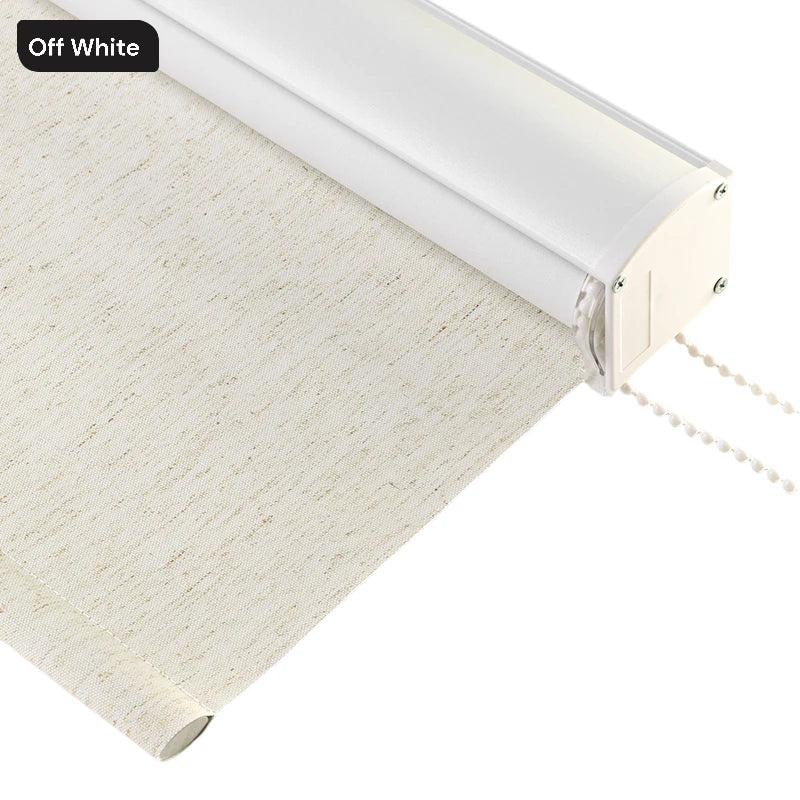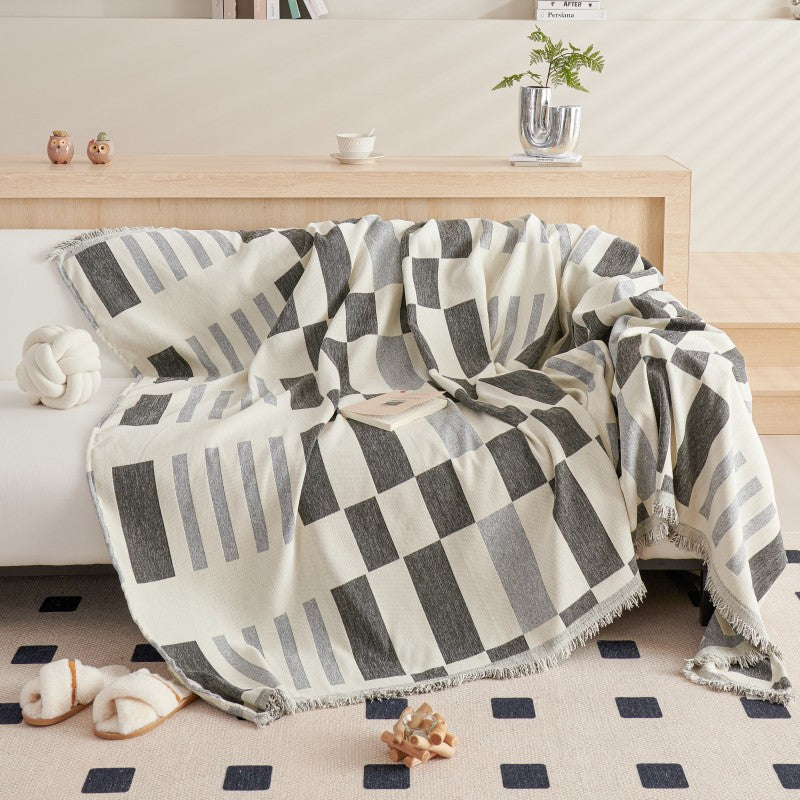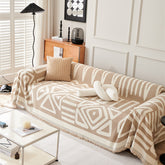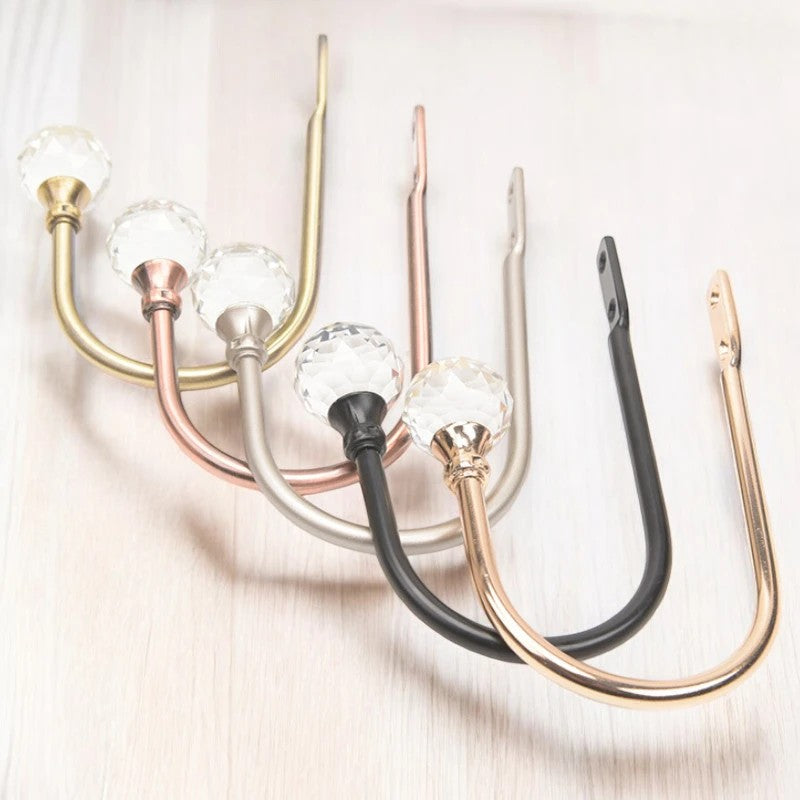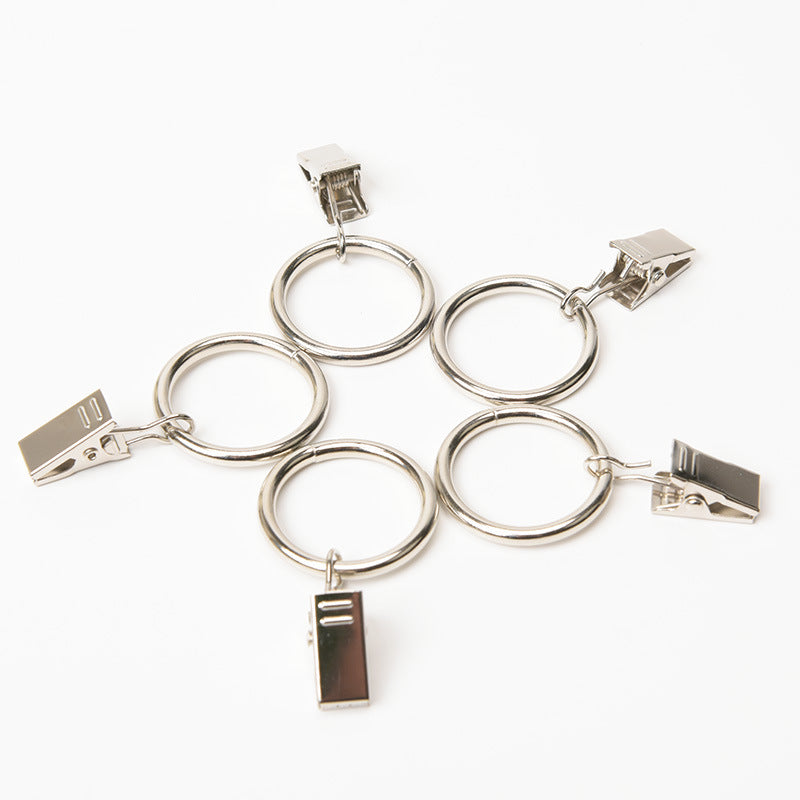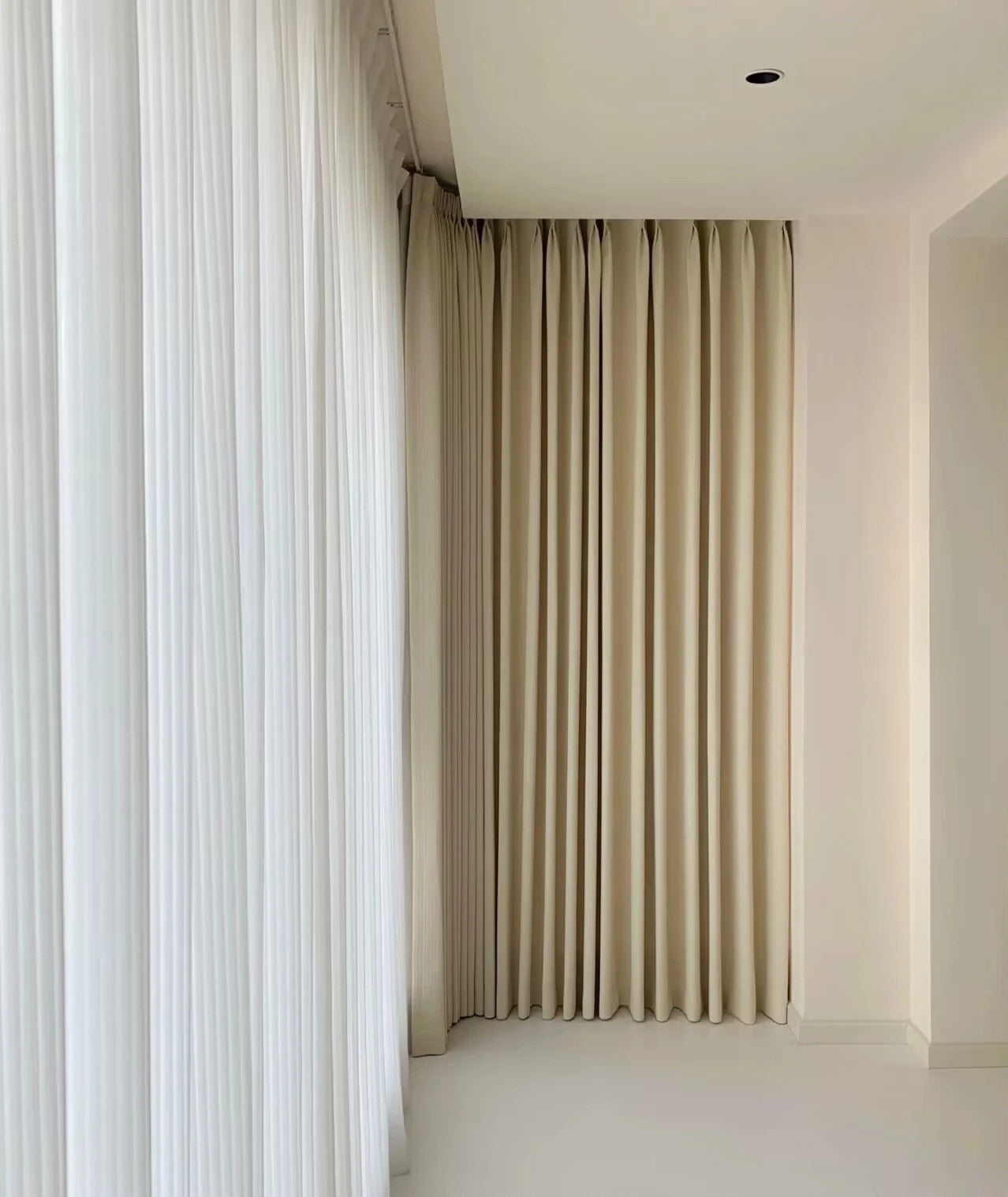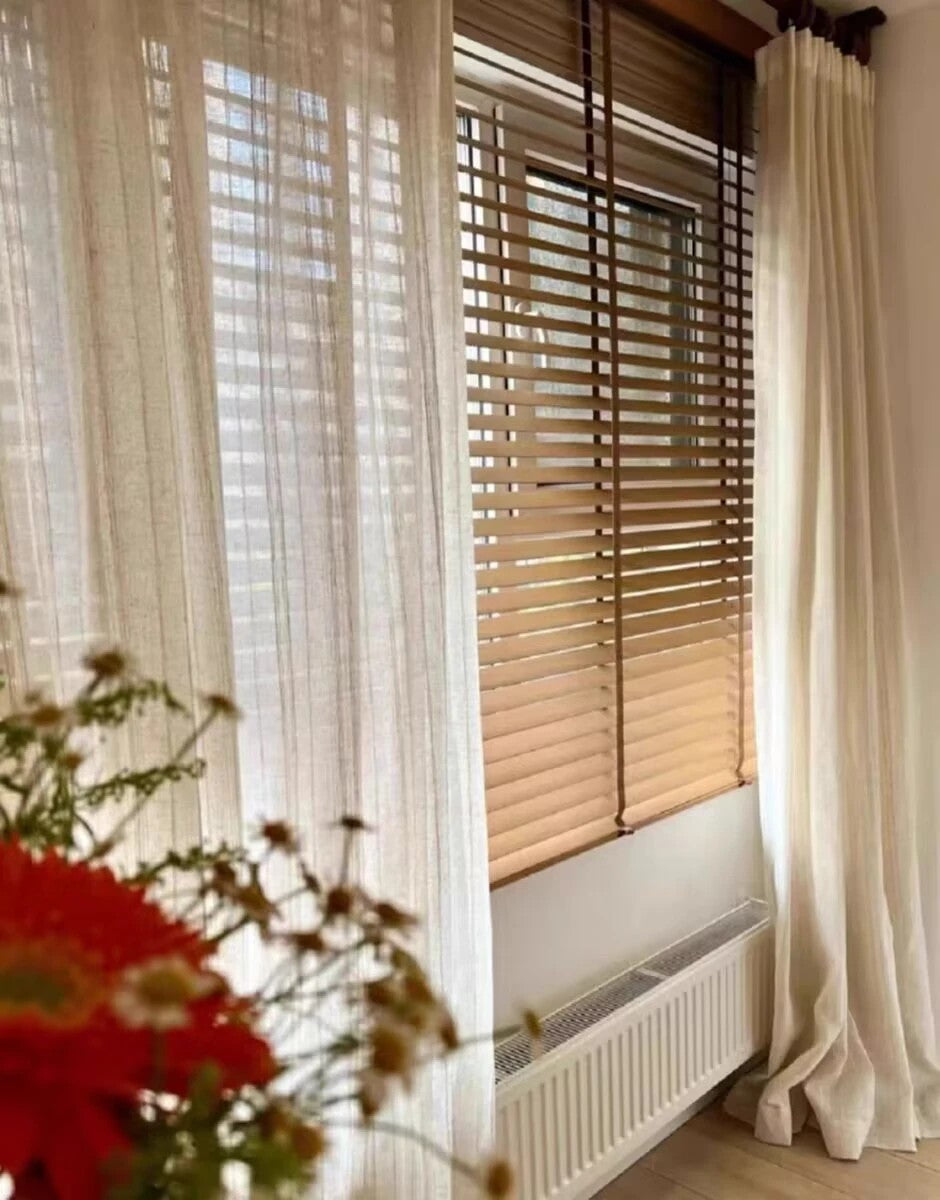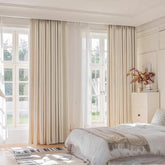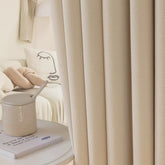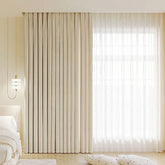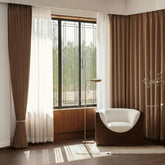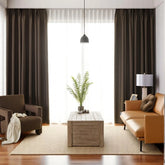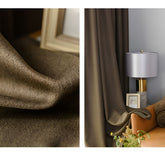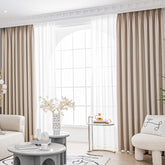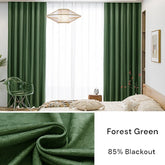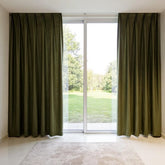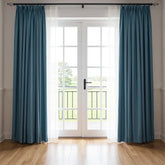Are Blackout Curtains Bad for You? The Truth About Health and Safety
Are Blackout Curtains Bad for You? Let's Find Out
Join James from Dolcewe.com as he explores the truth about blackout curtains and their impact on your health. Discover the benefits and potential concerns of these popular window treatments, learn how to choose safe options, and get expert advice on proper usage and maintenance. Uncover the facts about blackout curtains and make informed decisions for your home.
As the owner of Dolcewe.com for over 10 years, I want to help you understand blackout curtains better.
Many customers ask me if blackout curtains are safe for their homes. The simple answer is yes - blackout curtains are safe when made from good materials.
They can even help your health by improving your sleep. Let me share what I've learned from helping thousands of customers find the perfect window coverings.
Key Takeaways
| Main Section | Key Takeaway |
|---|---|
| Safety of Blackout Curtains | Blackout curtains are generally safe when chosen and used properly. Opt for curtains made from natural materials like cotton or certified non-toxic fabrics to minimize health risks. |
| Benefits of Blackout Curtains | Blackout curtains improve sleep quality, reduce noise, and enhance privacy. Install them in bedrooms to create an optimal sleep environment, especially for shift workers or light-sensitive sleepers. |
| Potential Health Concerns | While some concerns exist about respiratory issues, these can be mitigated. Ensure proper ventilation in rooms with blackout curtains and clean them regularly to prevent dust accumulation. |
| Choosing Safe Curtains | Look for certifications like OEKO-TEX or Greenguard when selecting blackout curtains. At Dolcewe, we offer curtains that meet these standards, ensuring your safety and peace of mind. |
| Proper Usage and Maintenance | Clean your blackout curtains every 3-6 months to prevent allergen buildup. Consider using a HEPA vacuum cleaner for more effective cleaning and improved indoor air quality. |
| Balancing Light Exposure | While blackout curtains are great for sleep, ensure you get enough natural light during the day. Use curtain tiebacks or open your curtains for a few hours daily to maintain a healthy circadian rhythm. |
What Are Blackout Curtains?

Blackout curtains are special window coverings that block out light. They are thicker than normal curtains. These curtains have extra layers that stop light from coming through.
At Dolcewe.com, our blackout curtains use OEKO-TEX safe fabrics. We make them in any size you need. They help you sleep better by making your room dark.
You might wonder how they work. Most blackout curtains have three layers:
- A decorative front layer you can see
- A middle layer that blocks light
- A backing layer that faces your window
This design keeps your room dark even during the day. Your room stays cooler in summer too. That's why many people choose them for bedrooms.
Health Benefits of Blackout Curtains

Did you know that darkness helps you sleep better? It's true! Your body makes a sleep hormone called melatonin when it's dark.
Better Sleep Quality
When your room is too bright, you might wake up too early. Blackout curtains help you sleep the right amount of time. This is very good for your health.
Many of my customers tell me they sleep much better after getting blackout curtains. Parents especially love them for kids' rooms. Children often need darkness to sleep well.
Temperature Control Benefits
Blackout curtains keep rooms cooler in hot weather. They block the sun's heat from entering. This means your air conditioner works less hard.
In winter, these curtains help keep warm air inside your home. Your heating bills might get smaller. That's good for your wallet and the earth!
Your wallet will thank you. Many customers are surprised by how much money they save on energy bills. The curtains pay for themselves over time.
Noise Reduction & Enhanced Privacy
These curtains don't just block light – they muffle outside noise too. Say goodbye to sleep disturbances from traffic or noisy neighbors.
No more worrying about prying eyes. Blackout curtains offer:
- Protection from curious onlookers
- The ability to enjoy natural light when you want it
Are Blackout Curtains Safe? Common Concerns Answered

Some people worry about blackout curtains and health. Let me clear up these concerns with facts.
| Concern | The Truth | What We Do at Dolcewe.com |
|---|---|---|
| Chemical smell | Only low-quality curtains have strong smells | We use tested, safe materials |
| VOCs (harmful gases) | Good quality curtains have very low VOCs | Our products meet safety standards |
| Allergies | Some materials can cause allergies | We offer cotton and hypoallergenic options |
| Mold growth | Only happens with poor air flow | We recommend proper hanging techniques |
Myth 1: Blackout curtains are harmful to your health
The Truth: Not all blackout curtains pose health risks. While some may contain harmful chemicals, many safe options exist:
- Choose curtains made from natural materials like velvet, cotton, linen, or bamboo
- Look for certifications from OEKO-TEX or Greenguard
- At Dolcewe.com, all our blackout curtains come with OEKO-TEX certification.
Myth 2: Blackout curtains cause allergies
The Truth: Curtains can accumulate dust and allergens, but this isn't unique to blackout curtains. Regular maintenance prevents allergy issues:
- Vacuum or wash your curtains every 3-4 months
- For heavy-use areas, clean more frequently
- Consider using a HEPA filter vacuum for more effective cleaning
Myth 3: Blackout curtains create a stuffy environment
The Truth: Blackout curtains actually help regulate indoor temperature:
- They block heat in summer and retain warmth in winter
- This improves energy efficiency in your home
- Proper installation allows for air circulation
The Bottom Line
While there are considerations when using blackout curtains, the risks are often exaggerated.
By choosing high-quality curtains and following simple maintenance guidelines, you can enjoy all the benefits of blackout curtains without compromising your health or comfort.
At Dolcewe.com, we're committed to providing safe, effective blackout curtains that enhance your living space.
Feel free to reach out if you have any questions about choosing the right curtains for your home.
How to Choose Healthy Blackout Curtains

Picking the right blackout curtains helps avoid any health concerns. Here's my advice as someone who's worked with curtains for over a decade.
Safe Materials to Look For
The fabric of your curtains matters a lot. Natural fabrics are often the best choice.
Some good options include:
- 100% cotton blackout curtains
-
Polyester curtains with safe coatings
- Velvet curtains
- Linen-blend blackout options
- Curtains with safety certifications
At Dolcewe.com, we offer many fabric choices. We can help you find one that fits your needs and health concerns.
Look for Certifications
Keep an eye out for one of these safety certifications:
- OEKO-TEX
- Greenguard
- GOTS
These labels mean the curtains have passed tests for harmful substances. At Dolcewe,all fabrics are OEKO-TEX certificated.
Proper Installation Tips

How you hang your curtains affects air quality in your room.
Mount your curtain rod or track and hang curtains at least 4 inches above windows. This creates air space for better flow.
Make sure curtains are wide enough to fully open.
We include easy hanging instructions with all our curtains. Our team can also answer any questions you have.
Blackout Curtains for Different Rooms
Different rooms have different needs. Let me help you understand what works best.
Bedroom Blackout Solutions

Bedrooms need complete darkness for good sleep. Choose curtains that fully cover your windows. Overlapping the edges helps block all light.
Many of my customers say their sleep improved within days of installing blackout curtains. This is especially true for night shift workers.
Our custom sizing ensures a perfect fit for any window. No light will leak through the edges.
Children's Rooms and Safety

Parents often ask about blackout curtains for kid's rooms. These curtains help children stick to sleep schedules.
For children's rooms, I recommend curtains in short length and without long cords. This prevents safety hazards. Cordless options are perfect for families with young kids.
Many parents tell me their kids sleep later in the morning with blackout curtains. This means more rest for the whole family!
Cleaning and Maintaining Your Blackout Curtains
Keeping your curtains clean helps them last longer. It also prevents dust buildup.
Washing Instructions
Most blackout curtains need gentle cleaning. Check the label on your curtains before washing.
Many can be machine washed on a gentle cycle. Use cold water and mild soap. Hang to dry or use low heat in the dryer.
At Dolcewe.com, we provide care instructions for each product. Following these steps keeps your curtains looking great.
When to Replace Curtains
Even good blackout curtains need replacing eventually. Watch for these signs:
- Fading color
- Thinning fabric
- Light coming through
- Strong odors that don't wash out
Most quality blackout curtains last 5-7 years with proper care. This makes them a good investment for your home.
Comparing Blackout Curtains to Other Options
You have many choices for window coverings. Let's see how blackout curtains compare.
| Feature | Blackout Curtains | Regular Curtains | Blinds |
|---|---|---|---|
| Light blocking | Excellent (95-100%) | Poor to moderate | Moderate |
| Temperature control | Very good | Minimal | Moderate |
| Health benefits | Better sleep, energy savings | Limited | Some light control |
| Customization | Highly customizable | Customizable | Limited options |
| Pricing | From $26.99 at Dolcewe.com | Varies widely | Varies widely |
Many customers try other options before switching to blackout curtains. They often wish they had started with blackout curtains first!
Seasonal Benefits of Blackout Curtains
Your curtains work differently throughout the year. They help in all seasons.
Summer Advantages
In summer, blackout curtains block heat from the sun. Your room stays up to 10 degrees cooler. This means less air conditioning and lower bills.
Many customers in hot climates love this benefit. They save money while staying comfortable.
Winter Benefits
During winter, these curtains provide extra insulation. They keep warm air from escaping through windows. Your heating system works less hard.
This layer of protection makes rooms feel cozier. Many customers notice fewer cold drafts near windows after installing our curtains.
Conclusion: Are Blackout Curtains Right for Your Home?
Blackout curtains are not bad for you. In fact, they offer many health benefits. The key is choosing quality products and using them correctly.
At Dolcewe.com, we've helped customers find safe, effective blackout solutions for over 10 years. Our curtains start at just $26.99. We make custom size blackout curtains to fit your unique windows.
Do you want better sleep and lower energy bills? Blackout curtains might be perfect for you. Feel free to contact me with any questions about finding the right curtains for your home.
Remember to air out your room regularly. Open your curtains during the day when possible. This simple habit ensures you get all the benefits with none of the concerns.
I'm James from Dolcewe.com, and I'm here to help you find the perfect curtains for your home. Your health and satisfaction are always my top priorities.
FAQ
Q: Are blackout curtains bad for your health?
A: No, blackout curtains are not inherently bad for your health. They are designed to block out light and provide various benefits such as reducing noise and enhancing privacy.
Q: Do blackout curtains have any negative impacts on health?
A: While blackout curtains are generally safe to use, there are a few potential concerns to be aware of, particularly regarding respiratory issues. However, with proper ventilation and regular cleaning, these concerns can be mitigated.
Q: How do blackout curtains work?
A: Blackout curtains work by using a tightly-woven fabric that prevents light from passing through. This helps darken a room and create a more suitable environment for sleeping or reducing glare.
Q: Can blackout curtains improve sleep quality?
A: Yes, blackout curtains can improve sleep quality by blocking out external light that may disrupt sleep patterns. They create a darker and more conducive environment for restful sleep.
Q: Are there any risks associated with using blackout curtains?
A: While blackout curtains themselves pose no significant risks, it is essential to choose curtains made from safe and non-toxic materials. Be cautious of potential off-gassing from certain fabric treatments or dyes.
Q: How can I choose safe blackout curtains?
A: To ensure safe blackout curtains, consider factors such as material composition, certifications for low chemical emissions or non-toxicity, and openness about manufacturing processes. Look for reputable brands like dolcewe that prioritize health and safety.
Q: Can blackout curtains cause respiratory issues?
A: In some cases, blackout curtains may contribute to respiratory issues, particularly if they are not well-maintained or if there is insufficient ventilation in the room. Regular cleaning and proper airflow can help mitigate this concern.
Q: What are the benefits of blackout curtains?
A: Blackout curtains offer several benefits, including blocking out light for better sleep, reducing noise from outside, maintaining privacy, and controlling room temperature by insulating against heat or cold.
Q: Are there any negative effects of using blackout curtains?
A: While blackout curtains have numerous benefits, it is important to consider potential negative effects, such as the lack of natural light, which may affect mood or Vitamin D levels. However, these can often be balanced by incorporating other strategies into your daily routine.
Q: How can I use blackout curtains safely?
A: To use blackout curtains safely, ensure proper ventilation in the room, regular cleaning to prevent dust accumulation, and choose curtains made from safe materials. Follow the manufacturer's guidelines for installation and care.



